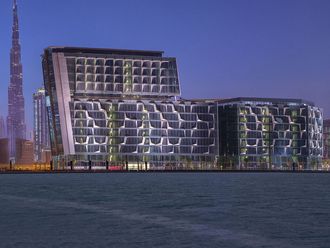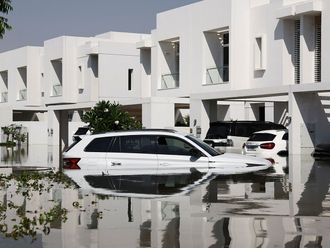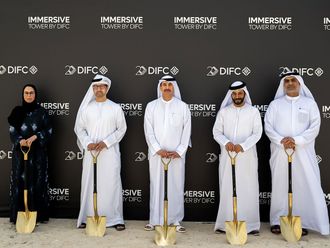For those of us in the industry, the news that Union Properties would spin off its facilities management (FM) division could not have come at a more opportune time.
An industry that has needed both transparency and consolidation for a long time finally gets the jolt that it has been looking for. This is a move that will likely spark a series of cascading events and spur an improvement in services.
In the era of VAT, further cost consciousness will be on the forefront of consumer minds, and it is this that should spur the move towards energy management through smart home technologies.
FM companies that will lead the way in this area will get to gain market share and capture the imagination of the consumer. And save a few of his dirhams as well.
The FM industry in Dubai is a fragmented one to be sure. Except for a handful of companies at the top, think of the industry as an umbrella of businesses, with tangled webs of outsourced operations amid hundreds of small outfits.
For the most part, this structure has led to razor-thin profit margins. This typically meant low customer satisfaction as that has been the easiest variable to sacrifice for short-term gains. In the current scenario, at the retail end, landlords in the freehold space have been unable to get effective competing quotes, given the lack of transparency, especially with regards to new technological solutions.
Tenants at the mid-end of the market have not had adequate representation to exert cost-effective measures for themselves. Where there has been professionalism, it has come with the trade-off of being expensive. This implies that either it has been relegated to the higher end of the marketplace or effectively done through the management of large buildings, thereby giving the FM company the ability to acquire marketshare.
This, however, has led to a gap in the marketplace, at the horizontal mid-end of the market (town houses, small villas, and small buildings, both residential and commercial), where single landlords have been unable to get adequate advice on how to improve their property. Tenants, equally, have been frustrated, with the consequence that there has been a higher turnover than seen in international markets of tenants moving houses.
In order to be proactive, FM companies need to invest in newer technologies, with smart home and energy management systems just being one of them. They have to have the ability to blend expertise of hardware installation alongside that of software expertise data processing in order to point the landlord and tenant to the best solution.
At the mid-end, the focus should — rightly so — remain on cost-effectiveness. However, the scalability of the model can only come through an education of the marketplace, combined with higher levels of after-service. This capitalisation of the industry is what is likely to drive further consolidation in the years ahead.
The corporatisation wave is bound to increase transparency and professionalism across the board, as homeowners association (HOA) boards exert pressure on behalf of landlords on the one hand and tenants start to demand more cost-effective mechanisms on the other.
This trend, for the most part, is similar to what is being played out in Tier 1 markets as well. It is only with the aid of technology these cost savings can be ensured, along with data transparency for the customer.
While this technology wave has been seen at the high end, the real target remains at the mid-end. And it is the acquisition of this slice that will separate the men from the boys ...
– The writer is Manager at Unitas Tech











